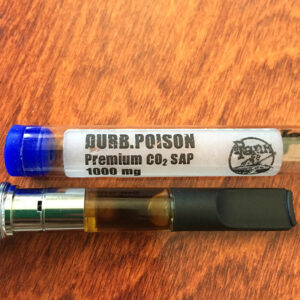How Long Do Weed Take To Get Out Your System, As cannabis use becomes increasingly common and accepted, many people are curious about how long it stays in their system. This is especially pertinent for those who may be subject to drug testing or who are considering their health and wellness. In this article, we will explore the factors that influence how long weed stays in your system, the various testing methods, and the implications for users.
Understanding THC and Its Metabolites
When cannabis is consumed, the active compound tetrahydrocannabinol (THC) is absorbed into the bloodstream. THC is the primary psychoactive component that produces the “high” associated with marijuana. However, when the body metabolizes THC, it breaks down into several metabolites, the most notable being THC-COOH. These metabolites can remain in the body long after the initial effects have worn off.
Factors Influencing Detection Time
Several factors can influence how long THC and its metabolites remain detectable in your system:
- Frequency of Use:
- Occasional Users: For those who use cannabis infrequently (once a week or less), THC can typically be detected in urine for up to 3 days after consumption.
- Regular Users: For those who use cannabis several times a week, THC can remain detectable for up to 10 days.
- Chronic Users: Daily users may find that THC stays in their system for 30 days or more.
- Metabolism: Individuals with a faster metabolism may eliminate THC more quickly than those with slower metabolic rates. Factors such as age, weight, and overall health can play significant roles.
- Body Fat: THC is fat-soluble, meaning it is stored in fat cells. Individuals with higher body fat percentages may retain THC longer than those with lower body fat.
- Hydration and Diet: Staying hydrated and maintaining a healthy diet can help speed up the elimination process. However, excessive hydration immediately before a drug test may lead to diluted urine, which can be flagged as suspicious.
- Type of Cannabis: The potency and strain of cannabis can also affect how long it remains in the system. Higher concentrations of THC may lead to longer detection times.
Testing Methods and Detection Windows
There are several common methods for testing THC levels in the body, each with its own detection windows:
- Urine Tests:
- Most common for workplace drug screenings.
- Detection window: 1-30 days depending on usage patterns.
- Blood Tests:
- Detects current impairment.
- Detection window: 1-2 days for occasional users; up to a week for chronic users.
- Saliva Tests:
- Used for roadside testing or workplace screenings.
- Detection window: 1-3 days.
- Hair Tests:
- Can detect cannabis use over a longer period.
- Detection window: Up to 90 days.
Conclusion
Understanding how long weed stays in your system can help individuals make informed decisions regarding their cannabis use, especially in contexts where drug testing is a factor. While occasional users may clear THC relatively quickly, regular and chronic users can expect longer detection times. Ultimately, factors such as metabolism, body fat, hydration, and the method of testing will all play a role in determining how long cannabis remains detectable.
If you’re concerned about passing a drug test or the health implications of cannabis use, it’s always best to consult with a healthcare professional for personalized advice.
You Might Also Like These:



